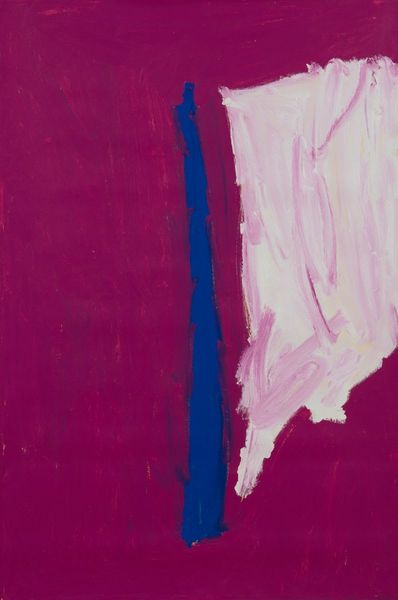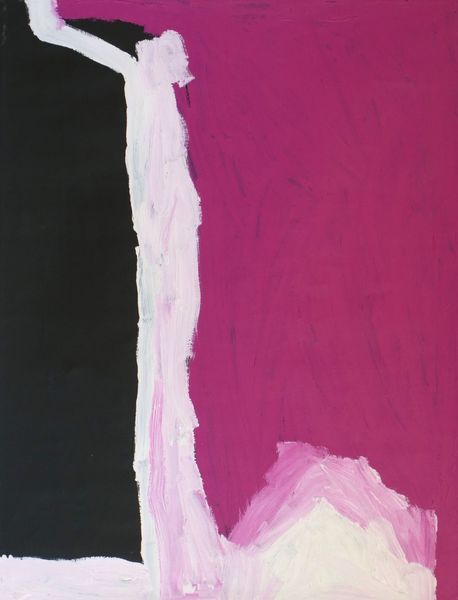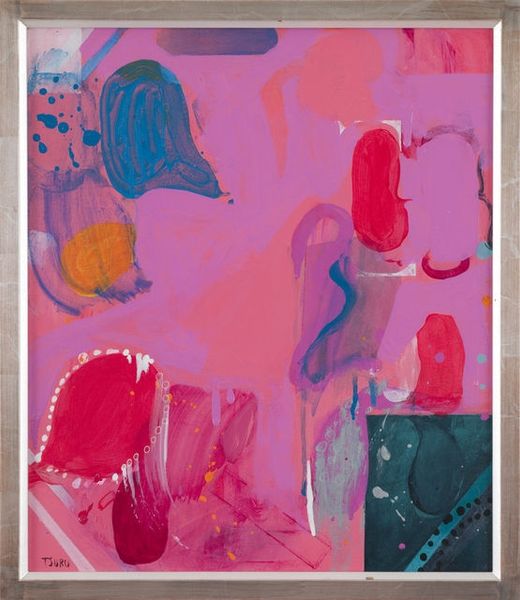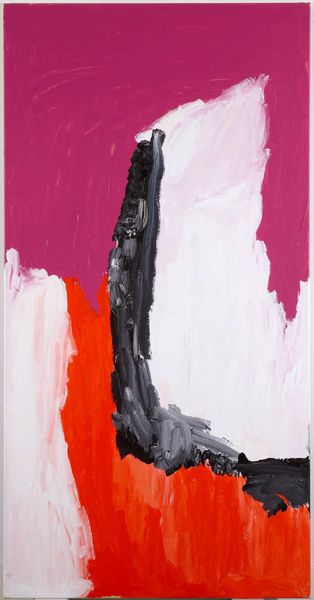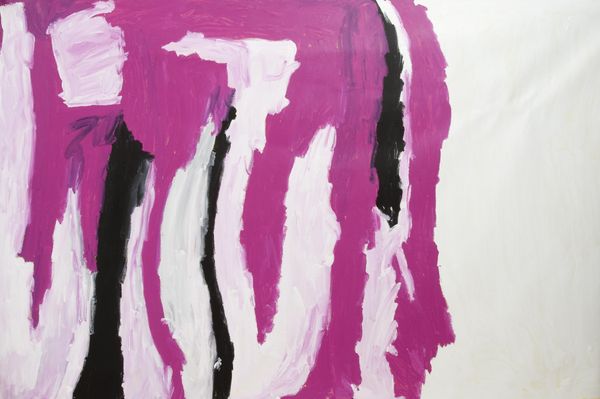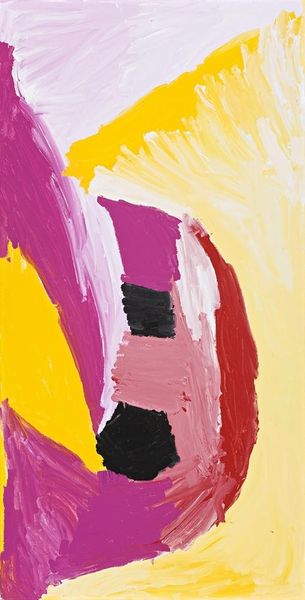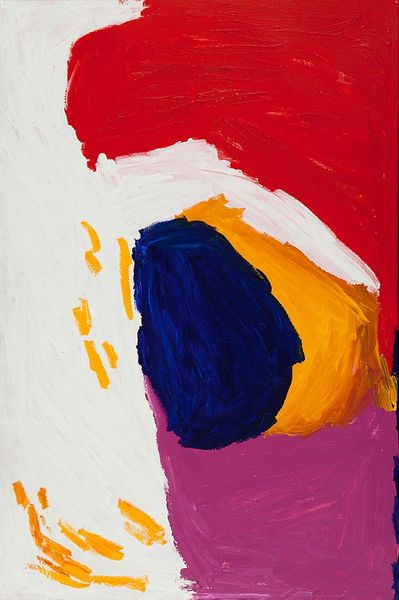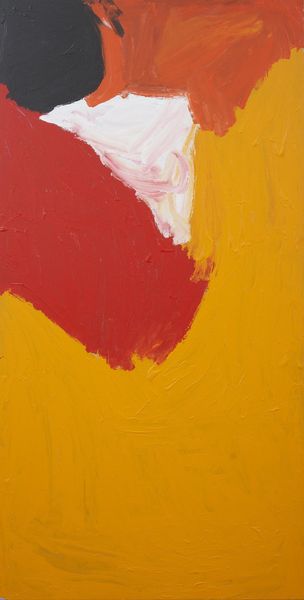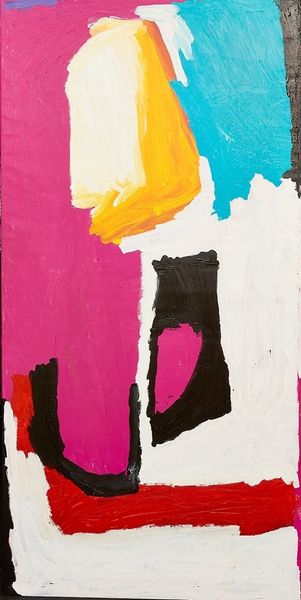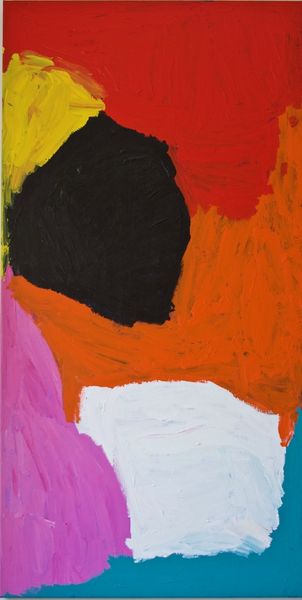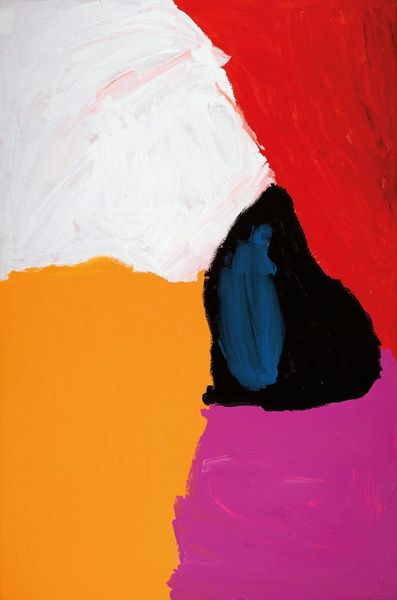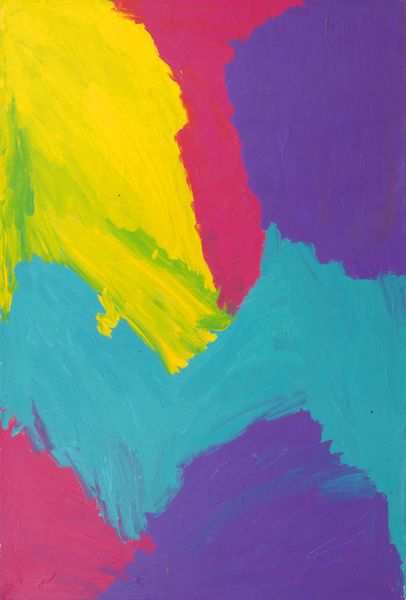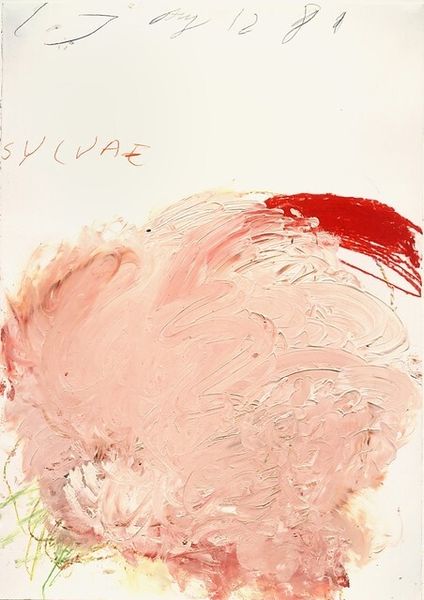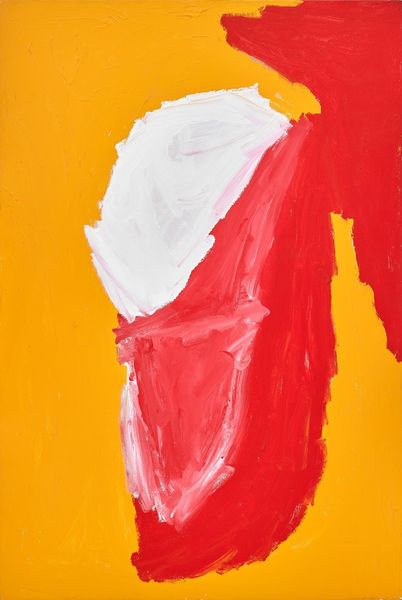
Copyright: Sally Gabori,Fair Use
Curator: So, this is "Thundi" by Sally Gabori, painted in 2008. She's working with oils and acrylics here, layering impasto strokes to build up this single, powerful form. What leaps out at you initially? Editor: Pink. A vibrant, unapologetic pink. And that singular shape—it feels both monumental and strangely vulnerable, like a solitary island refusing to be submerged. It's simple but forceful, if that makes sense? Curator: It absolutely does. It’s a bold declaration. Gabori’s work is deeply rooted in her connection to Bentinck Island, her ancestral home. “Thundi” specifically refers to a significant meeting place. Given that, how does the form resonate for you? Editor: Well, if we understand that Thundi is this meeting place, it kind of inverts the usual visual tropes around such spaces. It’s not a teeming hub. It's intensely isolated. In terms of a meeting place and cultural production, the isolation speaks, maybe, to Indigenous sovereignty. What seems like a vast emptiness, for Gabori and her community, might teem with other forms of wealth—ones less legible to colonizers. Curator: Precisely. Gabori began painting quite late in life, and her canvases became a way to map her memories, her belonging. The directness, the simplicity you see – that's not naivete. It’s a lifetime of knowledge distilled. It's incredibly immediate. It feels… viscerally connected to place. What is the materiality doing here for you? Editor: The texture invites touch, doesn't it? You can almost feel the weight and movement of her hand, applying those thick strokes. The very act of painting becomes a kind of reclaiming, an embodied assertion of presence. And that particular pink against the neutral ground makes it contemporary and ancestral, somehow. What strikes me is Gabori uses abstraction to assert a place-based identity against ongoing forms of erasure. Curator: That's wonderfully put. Looking at Gabori’s work is like glimpsing a conversation across time, between memory and matter. Each stroke becomes a word, a story, an assertion. Editor: Yes, and one that disrupts a lot of our expectations about art history and land. "Thundi" lingers as a potent reminder.
Comments
No comments
Be the first to comment and join the conversation on the ultimate creative platform.
